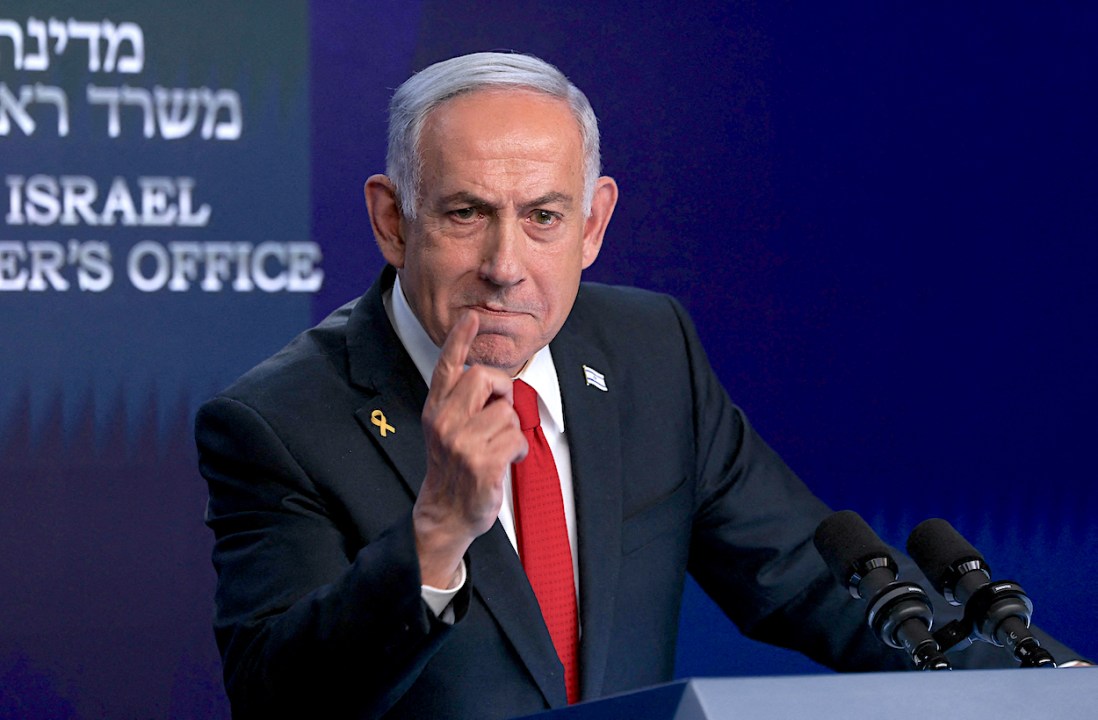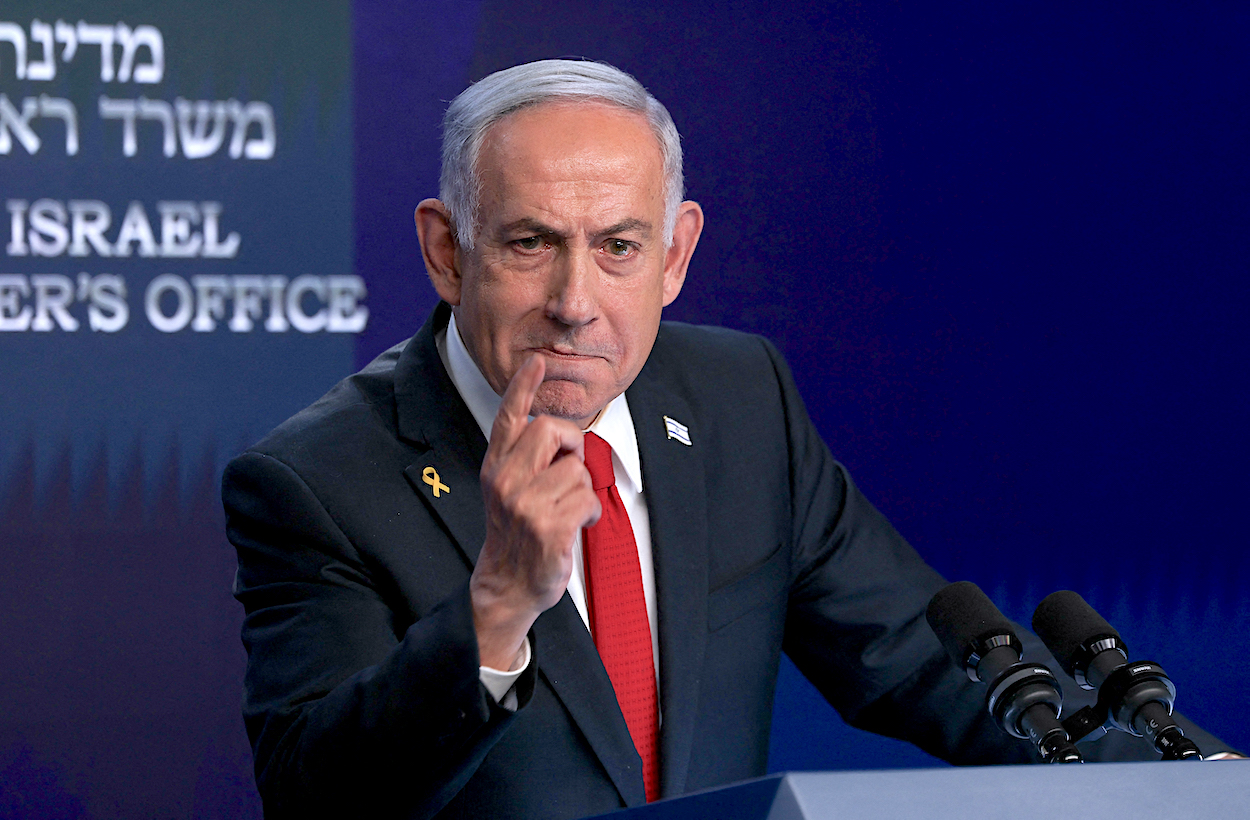The spectacular Israeli attack on Iran’s nuclear, missile and military sites and their commanders and scientists astonished the Israeli public as well as the world. It was a combination of accurate intelligence and brilliant execution by the Israeli Air Force and Mossad operatives.
The intelligence preparations for this operation, codenamed‘ Rising Lion’, lasted more than a year. Mossad agents infiltrated Iran and created a network of agents, assistants, safe houses, workshops, vehicles, forged documents and cover stories – alongside advanced technologies. They also smuggled drone components into Iran, before assembling and hiding them there.
These drones took part in the attack. In a sense the attack was reminiscent of the sophisticated Ukrainian drone attack deep inside Russia targeting air bases and destroying aircraft two weeks ago. However, Mossad has been deploying such tactics for three years or so now. In 2022, its operatives launched drones from Iranian soil which destroyed over 100 of Tehran’s own drones.
For more than a decade and a half, Mossad – with the help of the Israeli military intelligence – has repeatedly succeeded in penetrating Iran and exposing it. This has, in the past, enabled the assassination of nuclear scientists, missile force commanders and IRGC officers, and led to the sabotage of nuclear and missile sites.
What also contributed to Israel’s success yesterday was the fact that, in April 2024 and again last October, the Israeli Air Force destroyed much of Iran’s air defence network. This left it exposed, allowing Israeli warplanes to fly almost freely in Iranian skies.
What helped the operation to succeed was a ploy that fooled Iran’s military leadership. By sending fabricated signals, Israeli intelligence managed to lure the top commanders of the IRGC’s aerospace arm into gathering on Thursday night in an underground command centre. They stayed there until 3 a.m. on Friday without knowing that was Israel’s H-hour. The top echelon of the air force, including its commander, General Amir Ali Hajizadeh, were killed.
Among the most significant achievements of Rising Lion were the eliminations of Mohammad Bagheri (the chief of staff of Iran’s armed forces) and Hossein Salami (the head of the IRGC). These deaths are a major blow not just morally and psychologically for Iran, but also operationally in the short term. At least, that is, until their replacements – appointed quickly as a show of defiance toward Israel and to signal continuity – can assume their roles.
US President Donald Trump seems to have also had a role in deceiving the Iranians. He gave Iran the impression that he was committed to the stalled negotiations on reaching a nuclear deal, with the knowledge that Israeli Prime Minister Benjamin Netanyahu was pushing for imminent strikes.
The main aim of the Israeli operation was to destroy as much as possible of Iranian nuclear sites and to kill Iranian scientists who participated in the nuclear program. The security establishment is preparing for the possibility that the confrontation with Iran will last several more days, all the while hoping it does not escalate into a prolonged war of attrition. But it appears that Netanyahu is pushing to continue the war, driven by personal and political motivations. It is important to remember that the Iranians, known for their stubbornness and their historic self-perception as the ‘oppressed of the earth’, are well-versed in long, gruelling wars of attrition. One need only recall the war imposed on Iran by the Iraqi dictator Saddam Hussein in 1979. Hussein expected a brief conflict, but instead found himself in an eight-year war.
The Israeli public is exhausted
Since 2009, Netanyahu has raised the idea and formulated plans to attack Iran’s nuclear sites, but he always backed off at the last minute – or was restrained by Barack Obama, Trump (during his first term) or Joe Biden. There is no doubt that what occurred yesterday is the realisation of Netanyahu’s long-standing vision. He has repeatedly warned of the existential threat posed by Iran and has compared it to the Nazi threat. It is likely that Netanyahu will see a rise in public support and may attempt to prolong the campaign to capitalise on his success.
Iran’s nuclear programme now faces an uncertain future. One option for the country’s leadership is to withdraw from the Nuclear Non-Proliferation Treaty (NPT), as North Korea once did. Another is to enrich uranium from its current 60 per cent level to 90 per cent, which weapons-grade. It could also declare it is actively working to assemble a nuclear bomb, a process that might take months to a year.
Meanwhile, the Israeli public – exhausted from the Gaza war, a political crisis, and deep national division – must grapple with the government’s decision and all its economic, social, and psychological consequences. After the initial shock, Iran recovered and launched in six waves 200 ballistic missiles at Tel Aviv and its surrounding areas. Dozens of buildings were damaged, dozens of cars destroyed and three people were killed and many injured. Israeli air space is closed.
There is no guarantee that once the dust settles from the current military euphoria, there will be any strategic achievement. It could just as easily lead to a reality where Israel is doomed to live forever by the sword.








Comments